
by Gideon Marcus
Sliding Downhill
In the twenty years since the beginning of the Cold War, there have been many potential flashpoints between East and West. In 1950, Chinese-backed North Koreans almost took the entire Korean peninsula in a see-saw, later stalemated, conflict that lasted until 1953. Berlin twice became the hot spot — during the 1948 blockade and after the building of the Wall in 1961. Cuba, too, has been a fraught locale, with the 1959 Communist takeover followed by the disastrous American-backed invasion in 1961 and then the near-calamitous Missile Crisis of 1962.
And then there's Vietnam.

Formerly part of French Indochina, the region has been divided into two roughly equal halves since 1954, when Ho Chi Minh's Viet Cong threw off the colonial yoke in 1954. Since then, the Communist North has engaged in both insurgent and conventional tactics against the South.
Of course, the United States has backed South Vietnam despite it being a rather corrupt and authoritarian state that, for the past two years, has seen a revolving door of junta leaders running the country. American involvement included air support and "military advisers", our presence including about 20,000 troops, all told.
And then came the Gulf of Tonkin incident last August, in which American naval vessels reportedly were attacked off the coast of North Vietnam. That opened the door for a flood of American air strikes, including into neutral Laos to bomb the "Ho Chi Minh" supply trail.
It was perhaps inevitable that the Viet Cong would hit back, first with a bombing of an American billet in Saigon last month, and now, on February 6, with a mortar attack on Camp Holloway, near Pleiku in central South Vietnam.


8 soldiers died in that attack, more than 100 were injured, and there was extensive damage to American equipment. In retaliation, the U.S. launched Operation Flaming Dart, yet further intensifying the air war. Wives and children of American personnel were ordered to leave Vietnam, Hawk surface to air missile batteries were set up at the airbase in Da Nang, and a general escalation of the conflict appears inevitable. Publications, from the conservative Chicago Tribune to liberal LIFE Magazine, are clamoring for direct involvement.

That means American troops abroad, and anyone between 18-25 not currently enlisted in the military better start reconsidering their plans for the next few years. People like my nephew, David, who just turned 23. He's married, has a young son, and goes to UCLA, so perhaps he's safe. For now.
In any event, the papers are full of Vietnam news these days, and the voices against escalation are being drowned out by the hawks.

It looks like we're about to slide, slow-motion-wise, into another Korea. Call me an iconoclast peacenik, but I'm registering my protest early. This won't end well.
No Relief in Sight
For those hoping that the latest issue of Fantasy and Science Fiction would offer a respite from the world's glum news, I'm afraid I have to disappoint you. The return to form we rejoiced in last month quickly fizzled. This month's mag is a dud:
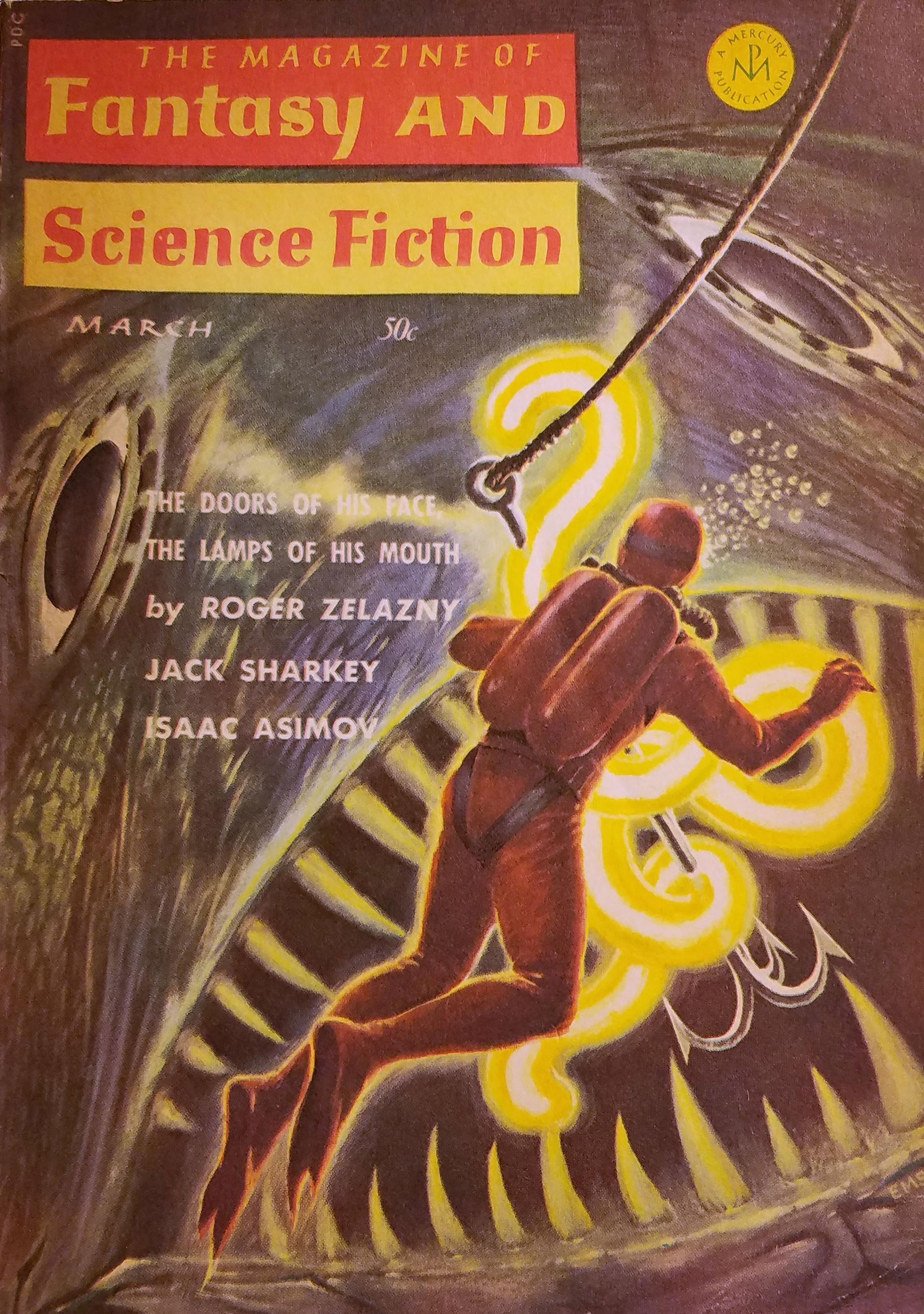
The Doors of His Face, the Lamps of His Mouth, by Roger Zelazny
In the sultry oceans of Venus resides a leviathan of a fish, a kind of mammoth angler called "Ikki". Bane to boaters, menace to fisheries, Ikki has been the target of big game hunters and professional exterminators. None have succeeded.
Rich dilettante Jean Lucarich is willing to pick up where others have left off, driving a 10-acre raft equipped with tranquilizer harpoons and giant cages off in search of the modern day Moby Dick. So keen is her desire that she has hired her old flame, a deep sea adventurer, to be a baiter. His job is to lure the Ikki in range of Jean's craft…and capture.
Persons who are more familiar with literary fiction can probably tell me what style Zelazny (the author) is going for. I found it overwrought and, in places, difficult to parse. But what bugged me the most was the utterly archaic (virtually Burroughsian) rendition of Venus. Zelazny's version of the Planet of Love is kinda warm, rather than 800 degrees Fahrenheit. Its day is roughly like an Earth's day, rather than 250 days long. The air is breathable, the water potable.
I nitpick because there's no way that the author doesn't know his Venus is wrong. Mariner 2, first interplanetary probe, finished its mission two years ago. It was in all the papers. Indeed, the story would have been more palatable had it taken place on Earth, say, in some remote corner of the Indian Ocean. It might even have been so, originally — some reject planned for Collier's or some other mainstream mag.
Anyway, it's not bad, but it's not really SF, and I found it too consciously literary. One Bradbury is quite enough.
Three stars.
Final Appeal, by J. H. Brennan
This first piece by the Ulsterian Brennan involves the quest for justice when the judges are all automated. It's one of those pieces that requires such an implausible development of technology (in this case, no human involvement at all in the rendering of judgment) that the "clever" solution falls flat.
It doesn't help that the solution, itself, while it may appeal to the mainstream of society, will be distasteful to a more free-thinking sort.
Two stars, and only because it kept me along for the ride until the inevitable disappointment (which came about a page too late).
Essentials Only, by Jack Sharkey
An absent-minded professor accidentally opens up a portal to a virgin alternate-Earth. He invites his friend to join him for a lifetime of simple pleasures, but of course, they need to bring their girlfriends. And their girlfriends insist on some modicum of civilization. And that includes certain, essential people. And their possessions. And more luxuries, just in case. And so on.
Jack Sharkey varies between mildly impressive to (more often) rather dreadful. But this story is pleasantly droll, inoffsenive.
Three stars.
The End of Eternity, by Ernesto Gastaldi
According to F&SF's new editor, Joseph Ferman, the state of Italian SF is pretty poor: mostly send-ups of cliches we abandoned in the Pulp Era. But, Ferman promises, this imported tale (translated by Harry Harrison) is something different.
He's wrong. End takes place in modern day Rome on the eve of its nuclear destruction. The bomb that will destroy it, scientists say, is so powerful that the space-time continuum might be ruptured. By the way, the protagonist is named "Romulo", and the story is redolent with reminders of the antiquity of the city. Can you guess what will happen?
Two stars for this Italian version of the creation myth.
Tripsych, by Ron Smith
Ferman praises Smith for his satirically broad rendition of three hoary SF ideas in as many vignettes. However, the world doesn't need more bad stories, even if their badness is intentional.
Two stars.
Illusion, by Walter H. Kerr
In 1951, J. T. McIntosh wrote Hallucination Orbit, the definitive tale on cracking up while on solitary assignment in space. Kerr's poem is on the same topic and compares unfavorably in all respects.
One star.
Better Than Ever, by Alex Kirs
There's a movie playing "over there". It takes a month to watch, and no one can tell you what it's about. But those who see it come back…changed. More mature, no longer plagued with their frailties and foibles. Better, one might say. An adman named Clinton is one of the last, stubborn holdouts, increasingly alienated as everyone he knows, one by one, goes to see this movie.
This is his story.
Well, sort of. Nothing much happens in this short piece, mostly just a portrait of social isolation — an isolation Clinton refuses to remedy with the obvious solution. Can you blame him?
Anyway, it's a fair piece, I guess. Probably some kind of metaphor. I don't know.
Three stars, sure.
Oh, East is East and West is East, by Isaac Asimov
In a recent Analog, editor Campbell included a geographical quiz: which states of the U.S.A. are the farthest North, South, East, and West? It's kind of a trick question since it hinges on the fact that Alaska straddles the 180th meridian and, thus, is both the farthest East and West (and North, but that's obvious to anyone who's read the paper since 1959, when Alaska became a state).
I got the answer right, but then, my first book was an atlas. The Good Dr. A. got it wrong, and thus produced an article to explain why he was really right. It's cute, but it doesn't tell you any more than a decent map would.
Three stars.
Ado About Nothing, by Bob Ottum, Jr.
There is a wall at the end of the universe posted with a sign that says that nothing exists beyond the wall. If you don't believe it, put a quarter in the wall and look through the peephole for yourself.
It's a silly vignette, but it appealed to the former editor, Avram Davidson, whose collected materials Ferman is apparently still depending on.
Two stars.
Uncollected Works, by Lin Carter
If 50 million monkeys at 50 million typewriters could eventually produce the works of William Shakespeare, what could a computing machine with infinite monkeys worth of random creative capacity produce?
Lin Carter has been around for a while, at least in SFF and Lovecraftian fandom circles, but this is the first story of his I've run across. Told from the perspective of an old literary critic, given to sentimental verbosity, it's a charming piece. It doesn't make a lick of sense, but it's charming. I feel like a little more thought could have made the scientific conceit more plausible, which would have then made the story more effective.
Three stars, anyway.
Maiden Voyage, by J. W. Schutz
Thankfully, the end of the issue is the bright spot. Schutz, currently American Consul General in Tangiers (Morocco), offers up this novelette in epistolary, detailing a scientific mission to Mars in the mid 2030s. Refreshingly, it stars a woman, and in a chatty, engaging style, describes the rigorous training, arduous journey, and perilous events that she endures.
It's straight science fiction, more what I'd expect from Analog than F&SF these days, and I enjoyed it. Bravo, especially for a first effort.
Four stars.
War Report
Both Vietnam and F&SF have been troubled spots for some time, with only isolated moments of hope to keep us going. I guess the question is this: do we continue to throw good money after bad? Maybe we should stick both out for another year and see what happens. If neither improves, maybe it's time to pull out, at last…


![[February 16, 1965] Return to a Quagmire (March 1965 <i>Fantasy and Science Fiction</i>)](https://galacticjourney.org/wp-content/uploads/2020/02/650214cover-672x372.jpg)

![[November 7, 1964] Landslides and Damp Squibs (December 1964 <i>IF</i>)](https://galacticjourney.org/wp-content/uploads/2019/11/641107cover-672x372.jpg)








![[October 20, 1964] The Struggle (November 1964 <i>Fantasy and Science Fiction</i>)](https://galacticjourney.org/wp-content/uploads/2019/10/641020cover-660x372.jpg)









![[October 12, 1964] Slow Cruising (November 1964 <i>Amazing</i>)](https://galacticjourney.org/wp-content/uploads/2019/10/641010cover-672x372.jpg)









![[October 8, 1964] Through Time and Space (November 1964 <i>IF</i>)](https://galacticjourney.org/wp-content/uploads/2019/10/641008cover-672x372.jpg)
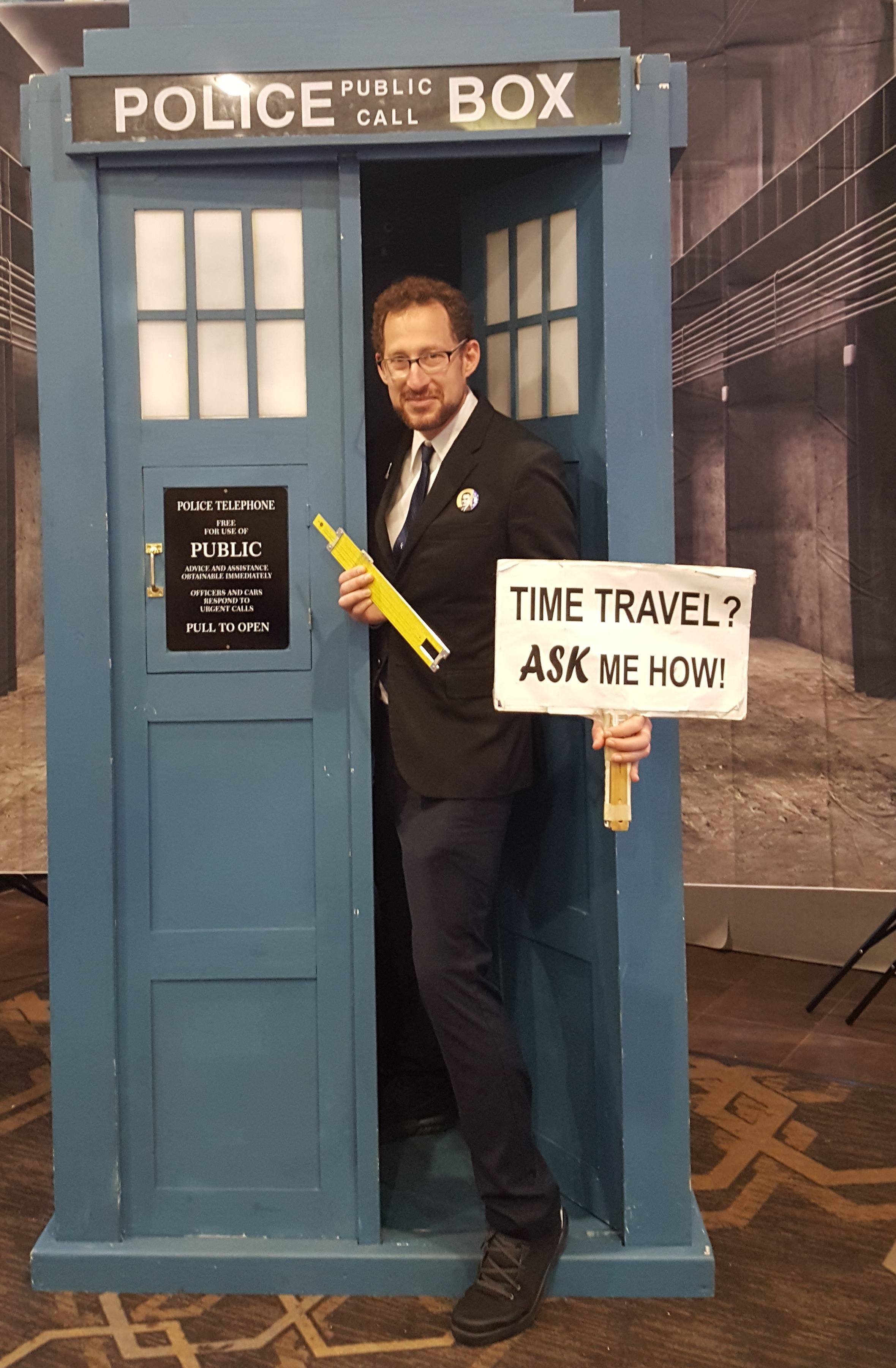


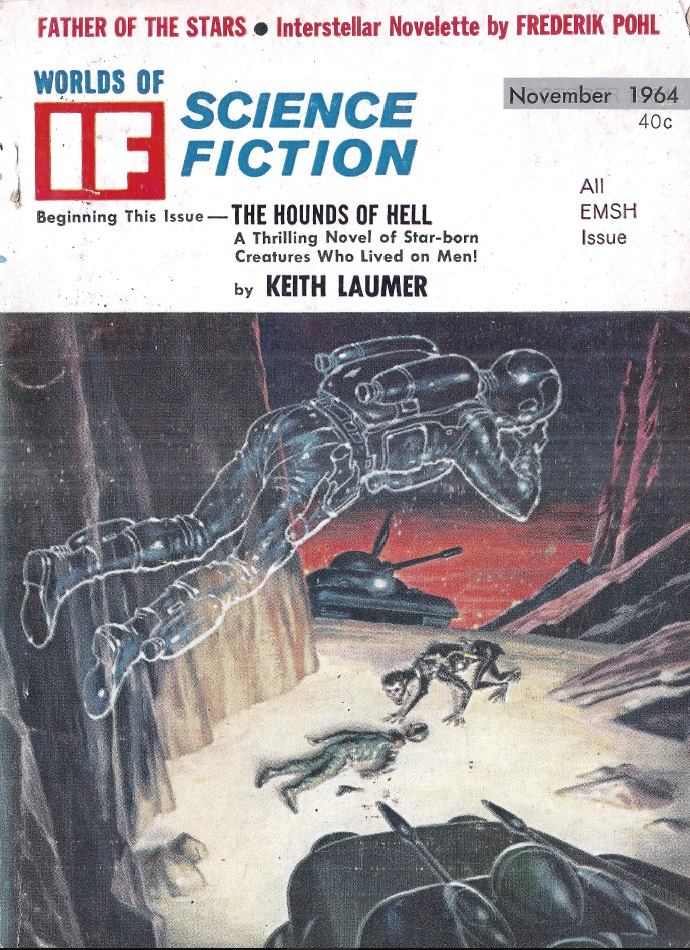


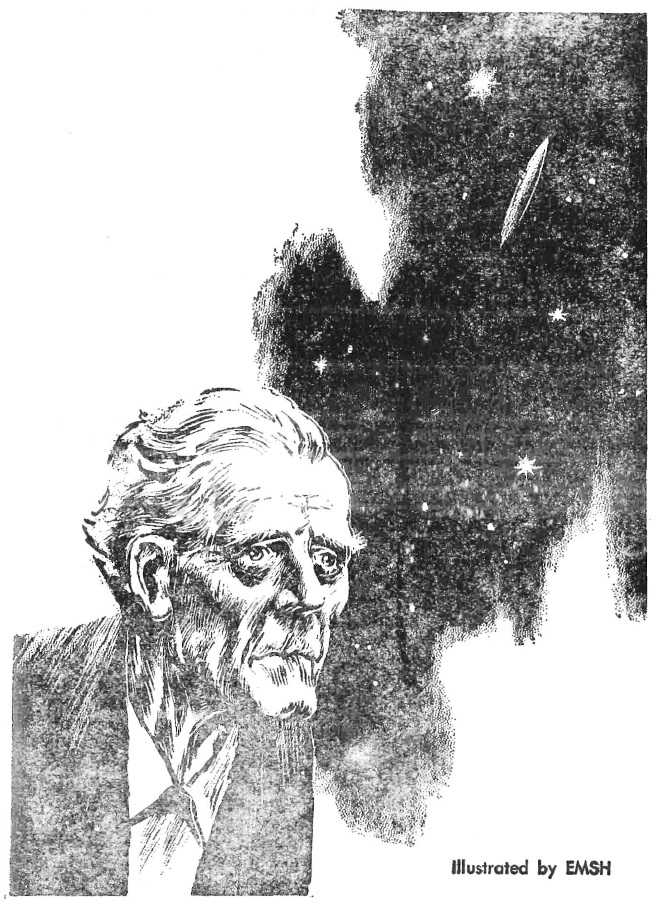

![[September 12, 1964] A Mysterious Affair of Style (October 1964 <i>Amazing</i>)](https://galacticjourney.org/wp-content/uploads/2019/09/amz1064cover-618x372.png)


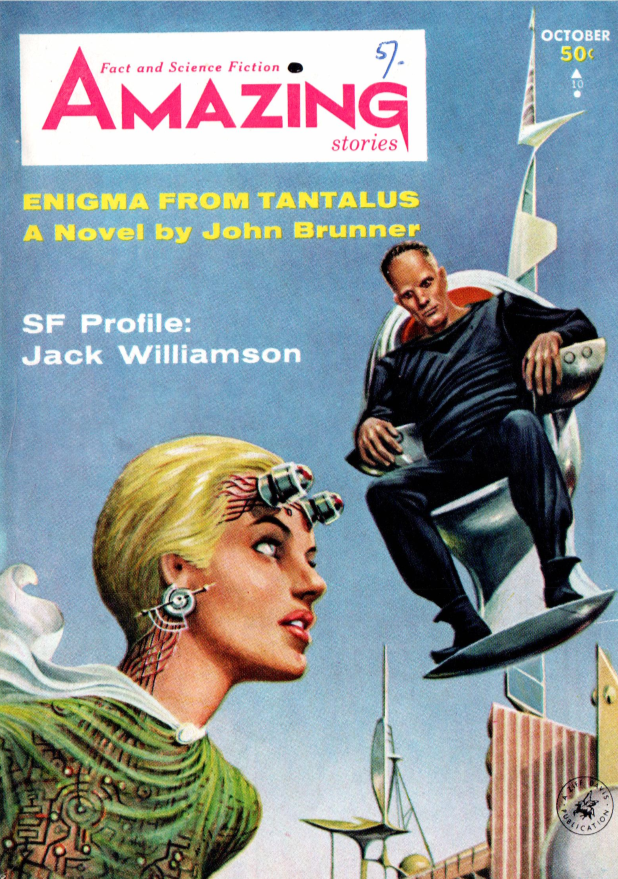
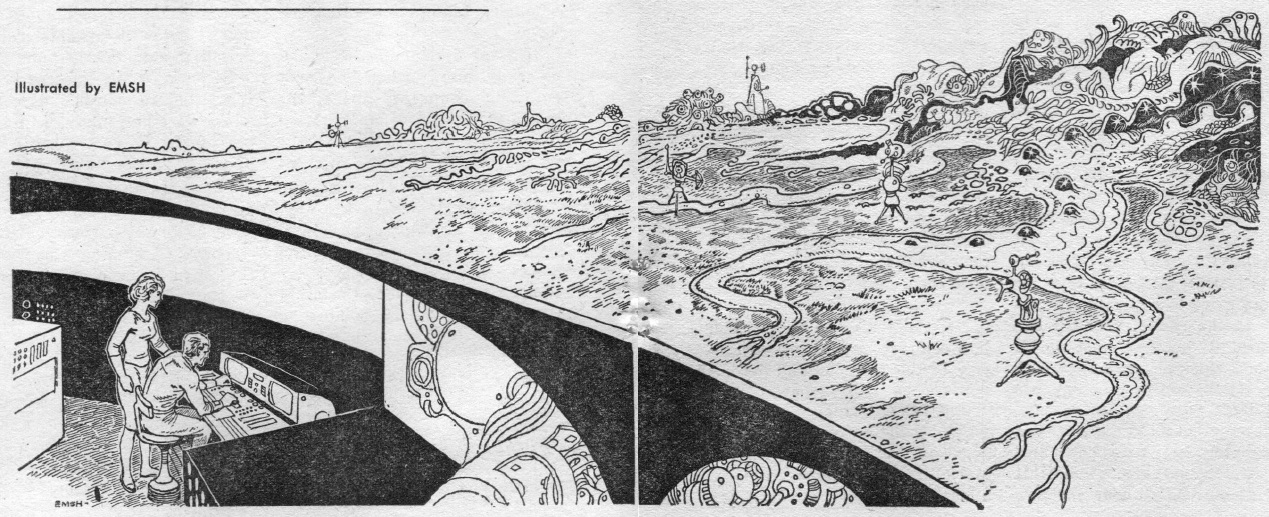 by Ed Emshwiller
by Ed Emshwiller




![[August 21, 1964] The Good News (September 1964 <i>Fantasy and Science Fiction</i>)](https://galacticjourney.org/wp-content/uploads/2019/08/640821cover-672x372.jpg)









![[June 22, 1964] The Bridal Path (July 1964 <i>Fantastic</i>)](https://galacticjourney.org/wp-content/uploads/2019/06/640622cover-477x372.jpg)



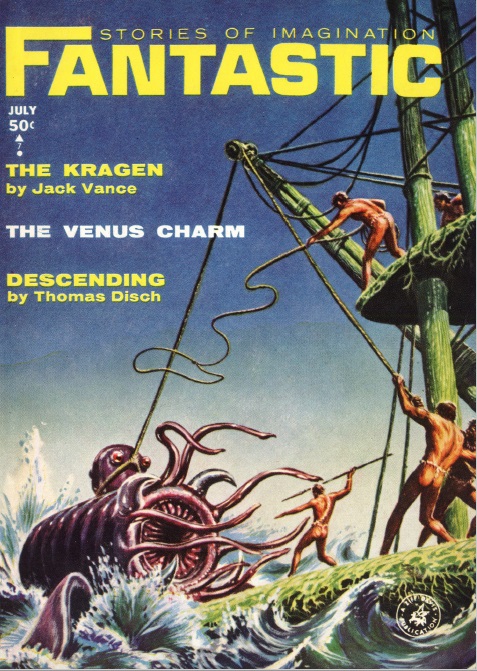

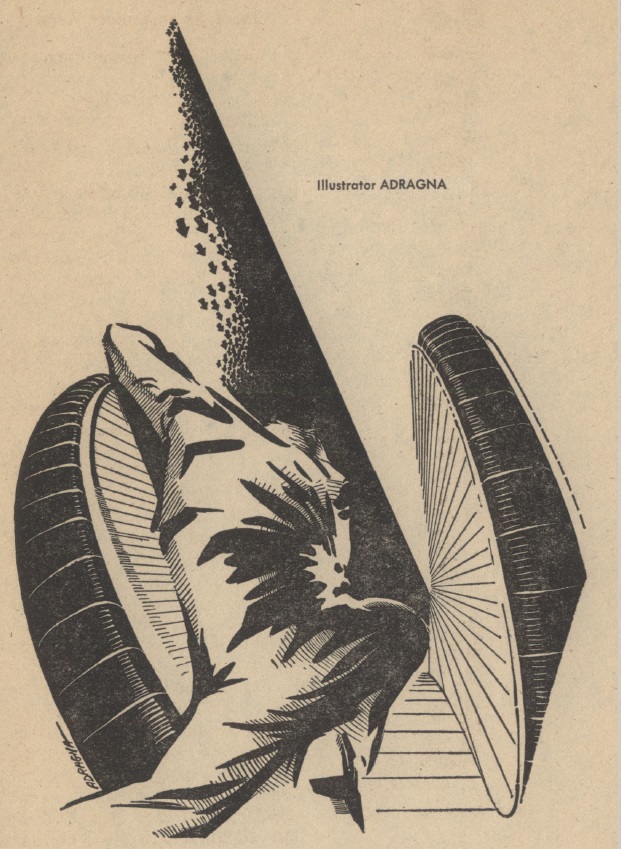




![[June 20, 1964] How low can you go? (July 1964 <i>Fantasy and Science Fiction</i>)](https://galacticjourney.org/wp-content/uploads/2019/06/640620cover-672x372.jpg)








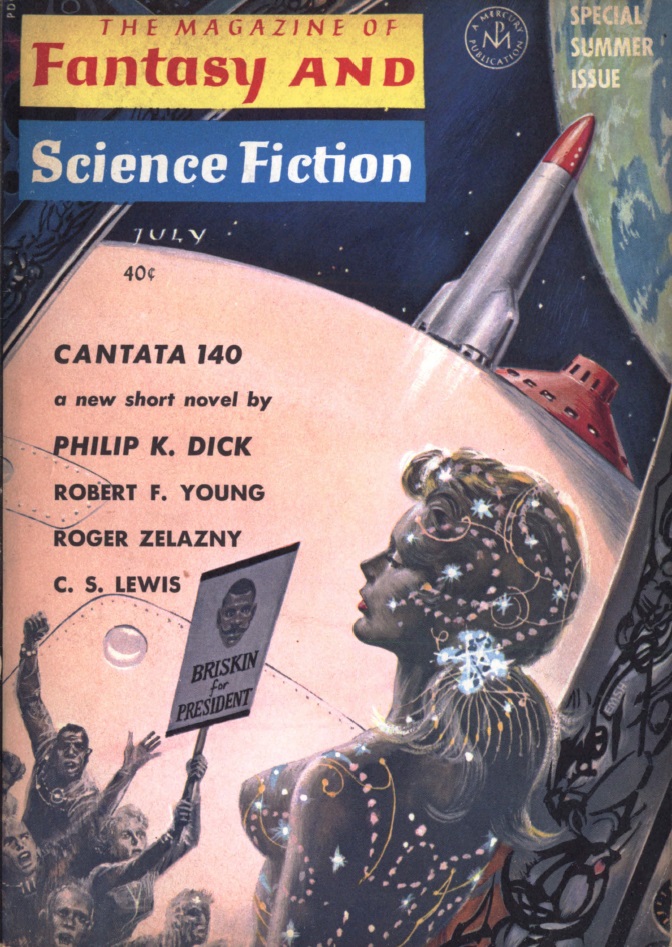
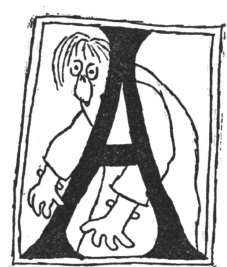
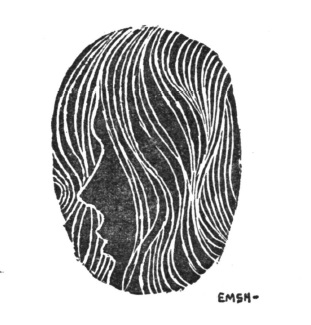



![[June 12, 1964] RISING THROUGH THE MURK (the July 1964 <i>Amazing</i>)](https://galacticjourney.org/wp-content/uploads/2019/06/640612cover-672x372.jpg)





